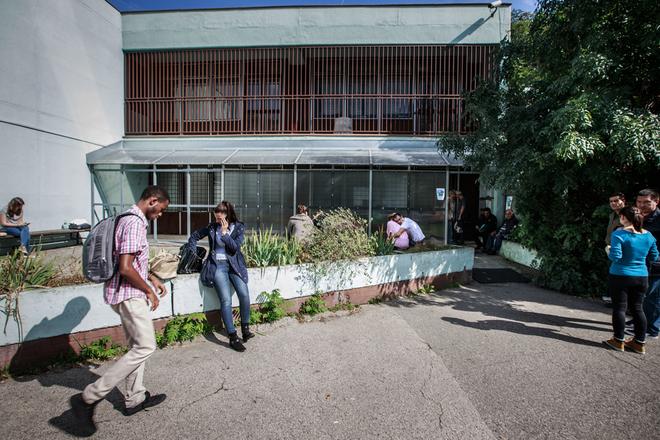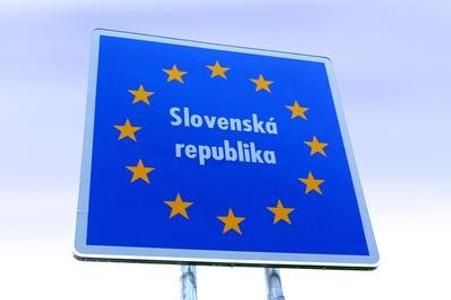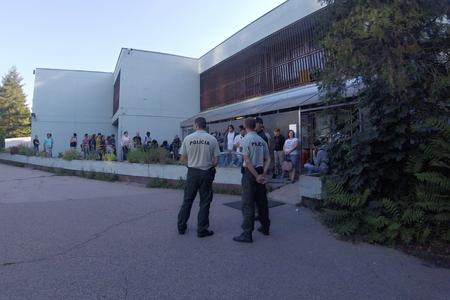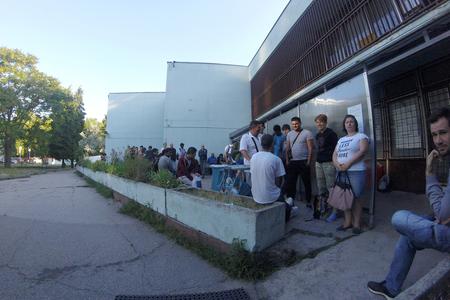Since the end of 2015, I have been writing about my experiences and observations as a Dutch guy living in Slovakia. So far, I have touched on various topics, ranging from the way Slovaks celebrate Easter to the danger of zebra crossings across the country. One topic I have refrained from writing about, however, is that dirty spot on this country's beauty called the "Foreigners’ Police".
I have recently changed employer and met foreigners who still have to go through the torturous ordeal of dealing with the Foreigners’ Police (FP), which has convinced me to write about it now.
It is the one institution in this country that should work "for" foreigners but instead does its best to work "against" us. It is that immovable object that you cannot get around, nor over, nor under, but must face head-on. It is that blunt weapon in the government's arsenal, hoping to discourage us from staying longer than is absolutely necessary. It is a concept that breaths intolerance in an otherwise very tolerant country.
One way or another, every foreigner living and working in Slovakia will have to deal with the FP, including myself. My main business at the FP is the permanent residence card, which all foreigners should have in order to arrange any further official business in this country, from simple things like signing up for a phone subscription to applying for a mortgage or even getting married.
The card contains your personal information, your Slovak social security number, your place of birth as well as your current permanent address on Slovak territory. This means that whenever you move house, you will need to request a new residence card in order for the permanent address to be corrected. Admittedly, this is not just an annoyance for foreigners but also for Slovaks, whose national ID card contains the same information. Regardless, it will ensure that if you plan to build your life in Slovakia for the foreseeable future, you will have to brave the long waits and ridiculous treatment at the FP more than once.
I am fully aware that when you move to a different country, you simply have to follow the local rules and regulations. I am all in favour of that. I decided to move to Slovakia, so I should follow their requirements. And you would not hear me complain if the cooperation with the FP was a smooth process. But it seems to me that the Slovak government has made torture into an art form by making any dealings with the FP an absolutely excruciating process which inadvertently will get your blood boiling, forces you to spend your hard-earned vacation days waiting literally hours in a room that makes your state doctor's waiting room look like a VIP lounge, gets you completely confused about what is actually required from you and, worst of all, will require you to bring a translator because speaking English was apparently not a requirement during the hiring process of those police officers destined to work with foreigners!
I have yet to meet a foreigner who managed to get the card in one go. Most foreigners I talk to had to go three, sometimes even four, times before the police accepted all the documents for processing their request! You brought a copy instead of an original? No luck then. Your documents are not notarized? No luck still.
For me, it took "only" two visits, because the first time I apparently missed one particular document (out of many you would need to apply for a residence card), which they forgot to mention when my wife phoned them up-front to inquire about the paperwork requirements.
The problem here is not that foreigners are ignorant or refuse to listen. The problem is the dissemination of important information by the state that foreigners need in order to get that “first-time-yield” benefit.
Some telling examples: until recently, the website on foreigners' affairs was barely translated to English and even now contains less information than the Slovak version, which I find extremely odd; the application forms are bilingual, but the English translation is so confusing that most foreigners, once they have figured out which form to use, will still need to ask a Slovak speaker to assist them with filling in the form; and most information pinned on the white boards in the waiting rooms is available only in Slovak. So it is not surprising that when your ticket number is called, following long hours of waiting, you might still end up with zilch and leave empty-handed.
Why the Foreigners’ Police department is not able (or willing?) to accommodate the foreigners at least a little bit by providing decent English support is hard to explain.
One reason might be that they simply don’t consider us foreigners. Let me explain: so far, I have been writing about the "Foreign" Police. This is a literal translation of the Slovak name of the department ("Cudzinecká polícia") and one that is indeed fitting considering its target audience. The Slovak government, however, maintains a slightly more "other-worldly" translation of this institution. To be a foreigner in a strange country is one thing, but to be called "Alien" is a whole different story.
All rules and regulations on foreigners staying on Slovak soil are included in the so-called "Act on Residence of Aliens", regulating things like "entry of aliens into the Slovak territory", the "area of the residence of aliens", "issuing documents for aliens", as well as "aliens who applied for the granting of asylum" (see here). Let’s not forget the "Alien Detention Centers" in the country for those aliens who misbehave.
Even though “alien” in this context appears to be a legal term, used by many states in their laws regarding internal affairs on foreigners, I find it incredibly disrespectful. I know it is all semantics, but it does tell you something about how a state perceives foreigners on its soil - a bunch of "E.T.'s" they'd gladly help find their way home.
At this point, I should probably add a disclaimer that in no way am I referring here to the shortcomings of the Slovak people. My arrows are fully aimed at the Slovak state system and its attitude towards foreigners living in Slovakia, primarily in the Bratislava Region (as I have been told the FP departments in other regions are supposedly way more relaxed in their dealings with foreigners). So don't mistake my views for Slovaks being xenophobic or anything in that direction.
Quite the opposite.. Generally, Slovaks are incredibly open and tolerant toward foreigners. Even in some of the smallest villages you may find international relationships fully integrated in the village life. Most Slovaks I know accepted me right from the start. Although I would love to imagine that this is due to my charming personality, it is more likely that Slovaks simply like being around foreigners. Generations, both young and old, show incredible interest in other people’s culture, their language and their habits. Despite obvious language barriers (especially when you leave the Bratislava area), Slovaks will never leave you out in the cold. Ever.
Boudewijn Dekker is a Dutch blogger who writes about his experiences and observations as a foreigner living and working in Slovakia. He shares his stories, pictures and opinions as The Curious Dutchman on his blogpage, his Facebook Page, and on Instagram.




